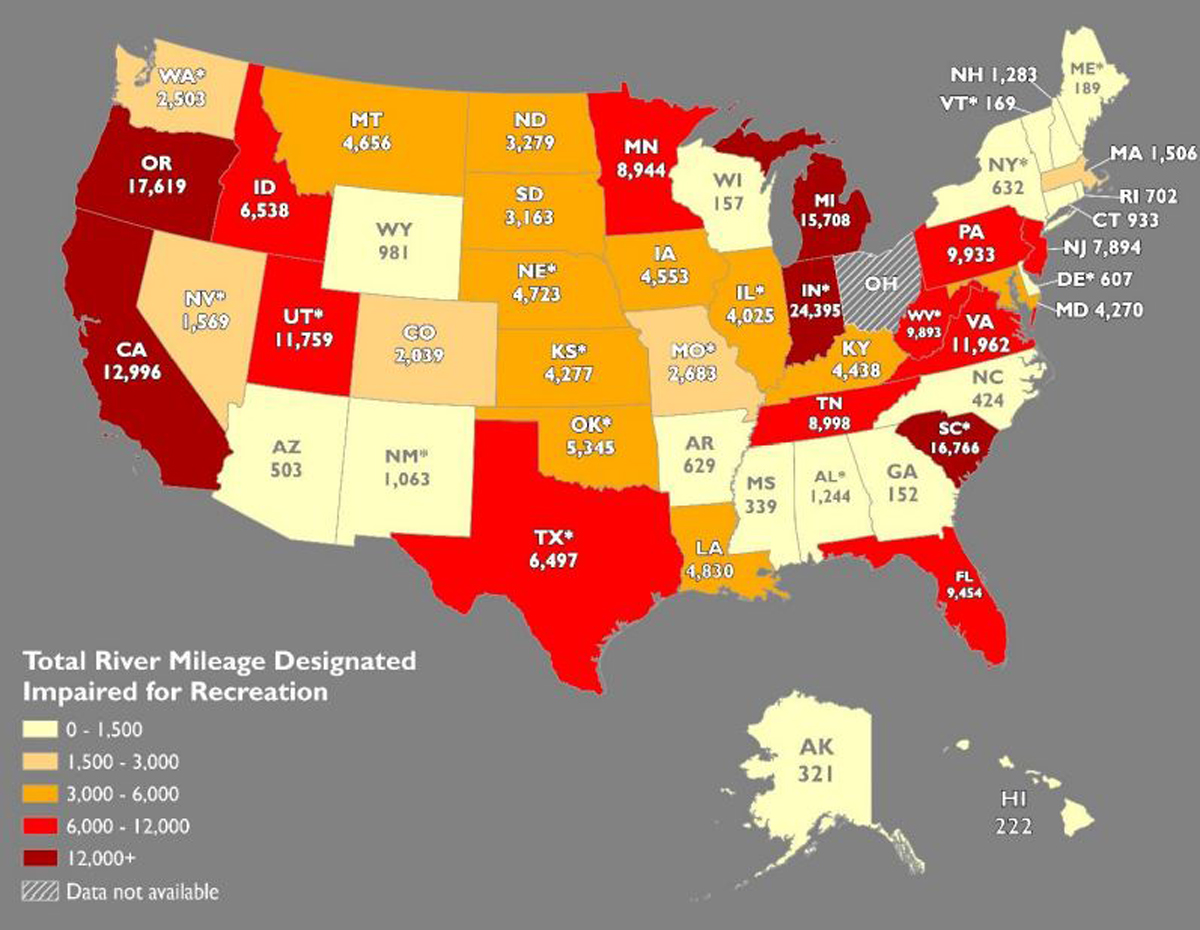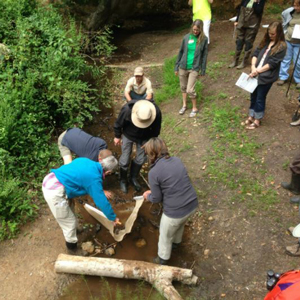The Water Log: Celebrate the 50th Anniversary of the Clean Water Act!
April 12th, 2022
By Erika Hollis
As we mentioned in the March Water Log, our team is working tirelessly to help restore impaired waters throughout the Upstate. We do this work through Watershed-Based Plans and implementation of best management practices, which are possible with funds from the South Carolina Department of Health and Environmental Control (DHEC) and partner organizations. Funding from DHEC is awarded to our state from the Environmental Protection Agency’s Clean Water Act.
Well, this year marks the 50th anniversary of the Clean Water Act! This leaves those of us in the Clean Water world wondering... how are South Carolina’s impaired waters doing? Below, we delve into our waters’ status and how we compare to other waters throughout the nation. You will also learn about ways you can help.

Erika Hollis
Clean Water Director
Upstate Forever
The Clean Water Act: The Basics
The Clean Water Act (CWA) was created by the Environmental Protection Agency (EPA) in 1972 and is the primary federal law governing water pollution. The CWA’s main objectives are to restore and maintain the chemical, physical, and biotic components of water across the nation. Using the CWA, the EPA has implemented pollution control initiatives, such as setting standards for wastewater and developing national water quality standards regarding pollutants in surface water.
The CWA requires states to send in updated, periodic reports on the condition of their state’s rivers, streams, lakes, and estuaries to the EPA. According to the most recent submissions, over half of the nation’s river and stream miles and lake acres are so polluted that they are classified as “impaired” — meaning these waters have enough pollution to not meet standards for swimming and recreation, aquatic life, fish consumption, or as drinking water resources.

What is the Status of Impaired Waters in SC?
While we have come a long way since the enactment of the CWA, challenges remain. In 2018, SC ranked third in the nation for the dirtiest waterways at 16,766 miles of contaminated water.
Here at home and across the nation, the leading cause of water pollution is from sources known as nonpoint source pollution — runoff from diffuse sources such as parking lots, streets, farms, construction sites, and others. Increasing public water quality awareness is critical to reversing this trend. We need more people to care, be willing to change behaviors, and get involved in clean water initiatives.
How can I get involved?
Aside from participating in our cost-share programs (which you can learn more about here), here are several other ways you can help improve water quality in the Upstate:
- Pick up pet waste
- Compost yard waste
- Test soil before fertilizing
- Recycle auto fluids
- Wash your car on your lawn or go to a car wash
- Choose native plants for your landscaping
- Send only rain down the drain
Get to Know Your Watershed through Citizen Science Programs
 Looking for another hands-on way to get involved? South Carolina’s Adopt-a-Stream (SC AAS) equips volunteers to monitor and report water quality data. The data volunteers collect complements local and state data used to determine the health of our waterways. Providing data that establishes baseline conditions of streams, volunteers, communities, educators, and local governments can help safeguard and restore vital water resources.
Looking for another hands-on way to get involved? South Carolina’s Adopt-a-Stream (SC AAS) equips volunteers to monitor and report water quality data. The data volunteers collect complements local and state data used to determine the health of our waterways. Providing data that establishes baseline conditions of streams, volunteers, communities, educators, and local governments can help safeguard and restore vital water resources.
The best part? You don’t need any formal environmental training or to be a scientist or angler to be able to join this effort!
If you’re interested in learning more about SC AAS or about becoming a volunteer, click here.
UNTIL NEXT TIME
Thank you for joining me for The Water Log, Upstate Forever's periodic newsletter dedicated to clean water issues and advocacy!
If you would like to receive The Water Log in your inbox or know someone who might like to receive this newsletter, please send them to this link to sign up: upstateforever.org/email
Have clean water questions or comments? Want to see if you qualify for septic repair assistance? Contact me at ehollis@upstateforever.org.

